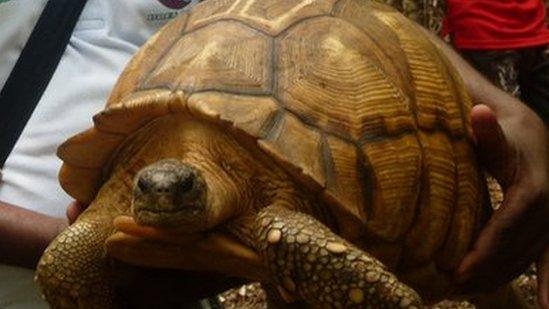Three-legged ploughshare tortoise finds new life on rollers
- Published
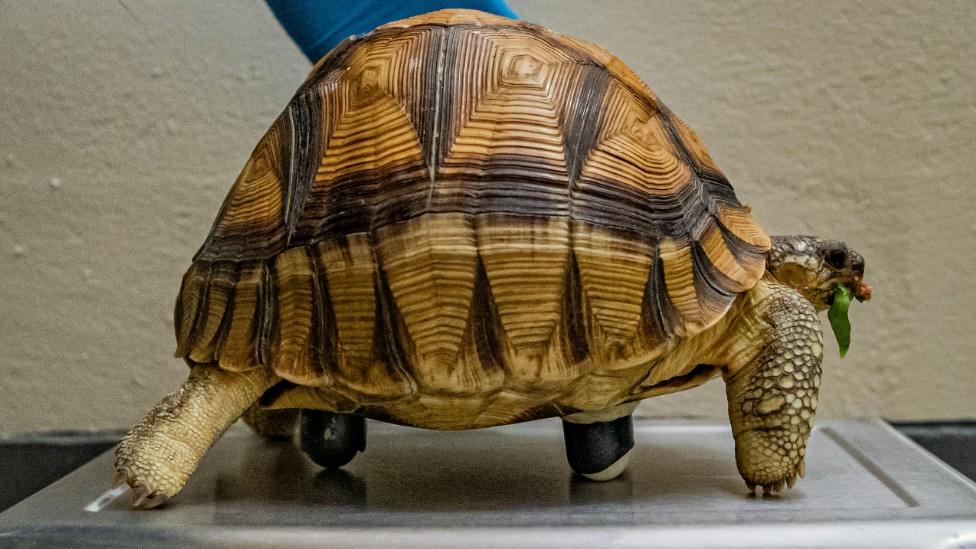
Dr Garcia said Hope "moves even quicker than his three neighbours"
A three-legged specimen of the world's rarest type of tortoise has been fitted with rollers to get it moving again after it was rescued from smugglers.
Hope, a ploughshare tortoise, has been given a new home at Chester Zoo after being found in a suitcase by Hong Kong customs officers in 2019.
The male, which is missing a front leg, was fitted with under-shell support rollers before arriving in Cheshire.
The zoo's Dr Gerardo Garcia said Hope was "an incredibly special tortoise".
Ploughshare tortoises, which are native to Madagascar, are one of the world's rarest animals, with fewer than 300 remaining in the wild.
'Quicker than his neighbours'
A spokesman for the zoo said only 63 specimens "exist legally outside of Madagascar as part of vital conservation breeding programmes battling to save the species".
"Chester Zoo is now home to four of these," he said.
He added that the species was "highly prized for their distinctive gold and black shells" and fetched "exceptionally high prices" on the black market.

Hope was found, along with 56 other endangered tortoises, three years ago
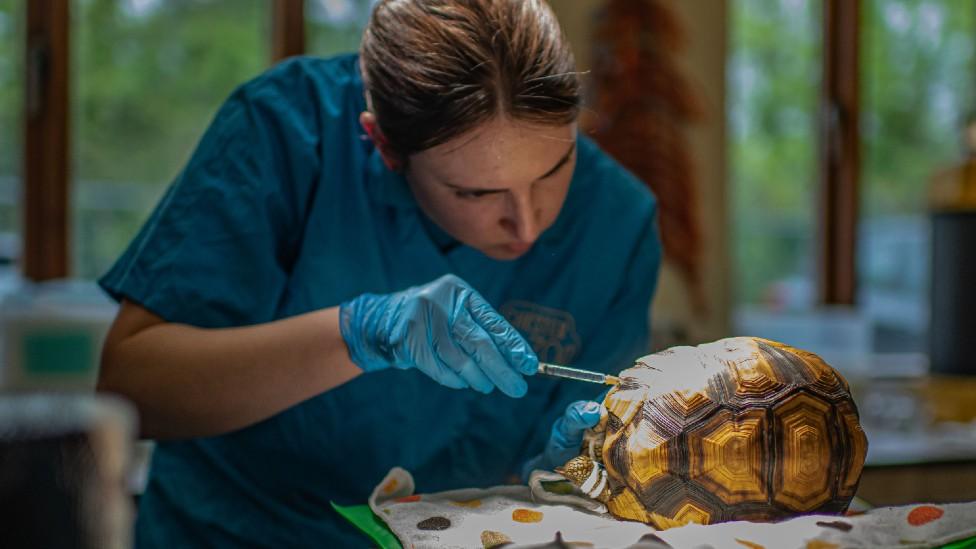
The zoo said Hope's supports underwent further modifications after arriving in the UK
Hope was found, along with 56 other endangered tortoises, three years ago by Hong Kong border officials.
The owner of the suitcase, a man from the Comoro Islands in East Africa, was later jailed for two years for smuggling.
The reptile was initially taken to an animal rescue centre in Hong Kong where support rollers were fitted under its lower shell to help it balance.
Further modifications were made to the rollers at Chester Zoo after Hope arrived in the UK.
Dr Garcia, the zoo's curator of lower vertebrates and invertebrates said Hope had had "a remarkable life story".
He said the "prosthetic mobility support" worked "wonderfully well".
"He moves even quicker than his three neighbours," he added.
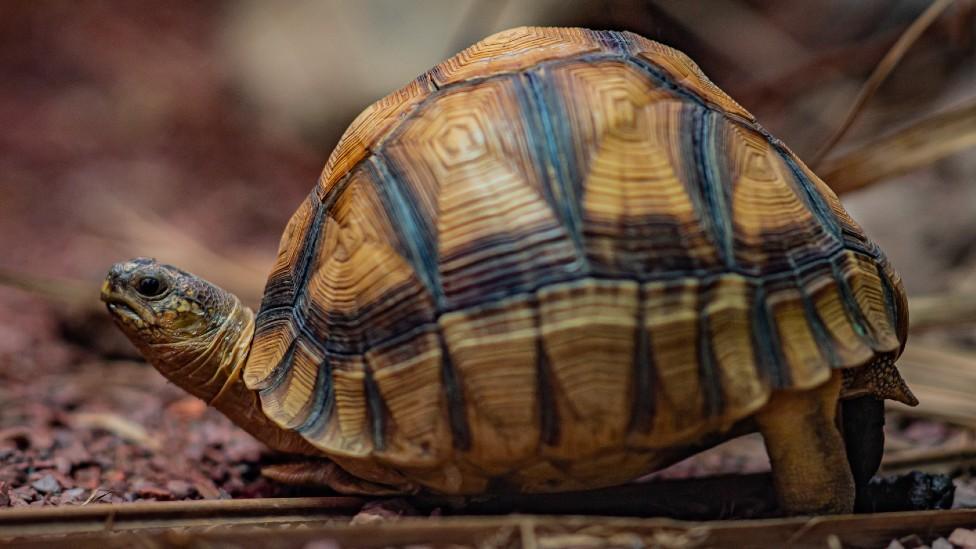
Hope will join a breeding programme at the zoo
Director of animals and plants Mike Jordan said Hope was "such an important addition to the zoo".
He said the species was "sadly under huge pressure for its survival" and there was a "very real possibility [it] could be lost forever".
He added that Hope would help "maintain an ark population" and join a breeding programme to create "a genetically viable safety net population and prevent its extinction".
"We refuse to sit back and see this incredible species disappear," he said.

Why not follow BBC North West on Facebook, external, Twitter, external and Instagram, external? You can also send story ideas to northwest.newsonline@bbc.co.uk
Related topics
- Published25 February 2017
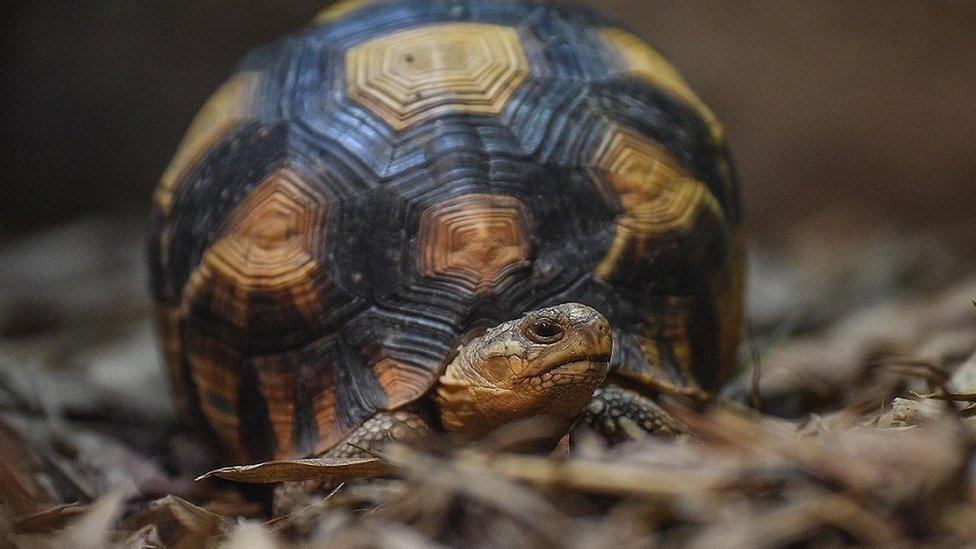
- Published24 June 2015
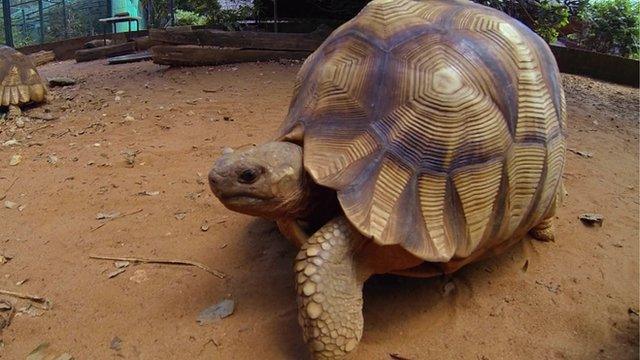
- Published4 February 2015
